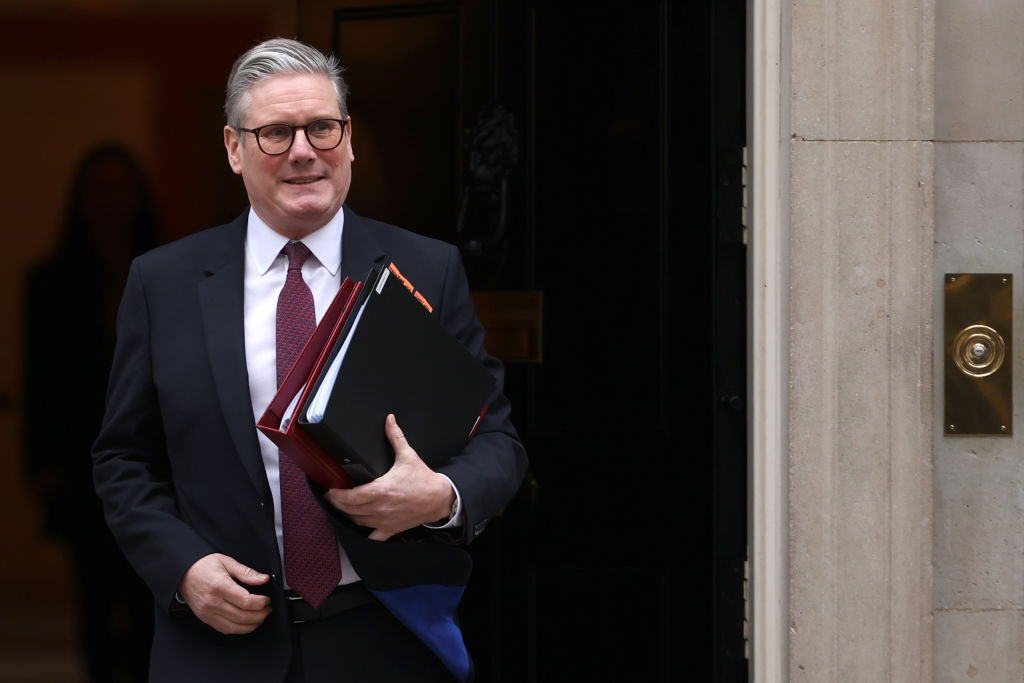The Munich Security Conference, which this week gathers in the Bavarian capital for its 61st edition, is a big deal in defence and foreign policy circles. When it first convened in 1963, there were just 60 delegates, but that has now grown to more than 350 heads of state, government and international organisations, ministers, senior military leaders, parliamentarians, business leaders and others. The incoming chairman of the conference is former Nato secretary-general Jens Stoltenberg.
Sir Keir Starmer is not among the attendees. While Boris Johnson gave speeches in 2021 and 2022, and Rishi Sunak addressed the meeting in 2023, the current prime minister will be represented by David Lammy, John Healey, Peter Kyle and Anneliese Dodds. No doubt they will all be frantically busy engaging with international counterparts, especially in light of the announcement by United States Secretary of Defence Pete Hegseth earlier in the week that President Trump had spoken to Vladimir Putin to begin negotiating an end to the war in Ukraine. Hegseth also revealed in a few words one of the biggest shifts in foreign policy since the Second World War:
‘Stark strategic realities prevent the United States of America from being primarily focused on the security of Europe.’
The Prime Minister is not an autocrat, of course. Clearly, he cannot and should not do everything, and the attendance of the Foreign Secretary and Defence Secretary is hardly evidence of the UK neglecting the event. Nevertheless, the stakes are extraordinarily high, and Starmer might have viewed the conference as a useful opportunity to engage face-to-face with a number of key allies.
JD Vance, will be in Munich, along with the Secretary of State, Marco Rubio, as will President Volodymyr Zelensky of Ukraine, Ursula von der Leyen, president of the European Commission, Nato secretary-general Mark Rutte, India’s external affairs minister Subrahmanyam Jaishankar and the German chancellor, Olaf Scholz. It is not as if Starmer would have been short of issues to discuss with these and other attendees.
It certainly cannot be said that the Prime Minister dislikes travelling. In his 7 months in office, he has undertaken 18 foreign visits to 17 different countries; his first overseas engagement as prime minister was less than a week after the general election which brought him to power. Yet this weekend will see him, so far as we are aware, at home.
No doubt Downing Street’s line will be that the United Kingdom’s interests will be ably represented and expressed by Lammy, Healey and others. The Foreign Secretary will participate in at least two panel discussions and the defence secretary one, as well as a host of other commitments. But in any conversation, each is limited by the boundaries of his ministerial brief, in a way that the Prime Minister is not.
This matters especially because Starmer has made so much of his desire to play a leadership role in security, and in particular in regard to the war in Ukraine. He spoke to Zelensky by telephone earlier and reiterated ‘the UK’s concrete support for Ukraine, for as long as it’s needed’, as well as reassuring him – in almost direct contradiction to the position of the United States – that Ukraine remained on an ‘irreversible path’ to Nato membership.
It is a frustrating habit of Starmer’s to state a bold ambition and then fail to take steps to make that ambition a reality. Defence spending is a perfect example: he went into the election campaign last year promising to ‘set out the path to spending 2.5 per cent of GDP on defence’ (though the flexibility of the wording was noted), yet there are now strong indications in Whitehall that such an increase will not be achieved this decade.
I sometimes sincerely wonder if the Prime Minister struggles to distinguish in his mind between saying something and making it happen in reality. There is certainly enough evidence from his first 7 months in Downing Street to give cause for reflection.
This week is an absolutely critical period not just for the future of Ukraine and its security and sovereignty, but for the global geopolitical situation and the UK’s place in the world. The Trump administration is fulfilling its erratic, brutally transactional and semi-isolationist promises, and this will have a seismic effect on every European nation. The impending imposition of a catastrophic ‘peace’ settlement on Ukraine has emboldened Russia and significantly increased the threat to its neighbours.
Under these circumstances, there is a strong case for Sir Keir Starmer changing his plans and, as his predecessors have often done, attending the Munich Security Conference to engage with allies and partners. Maybe it would make no difference, but it would have been better if we did not have to wonder.








Comments